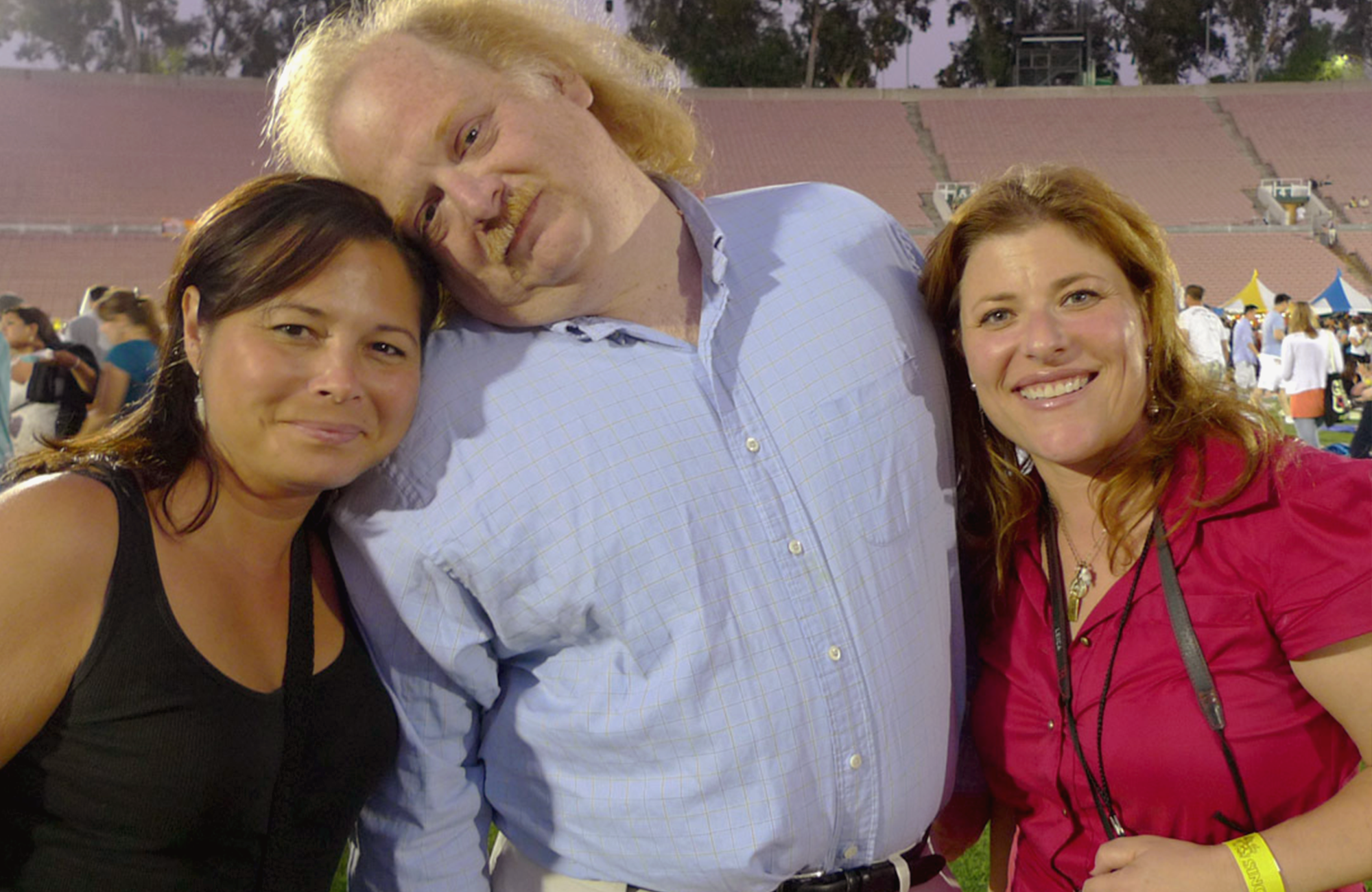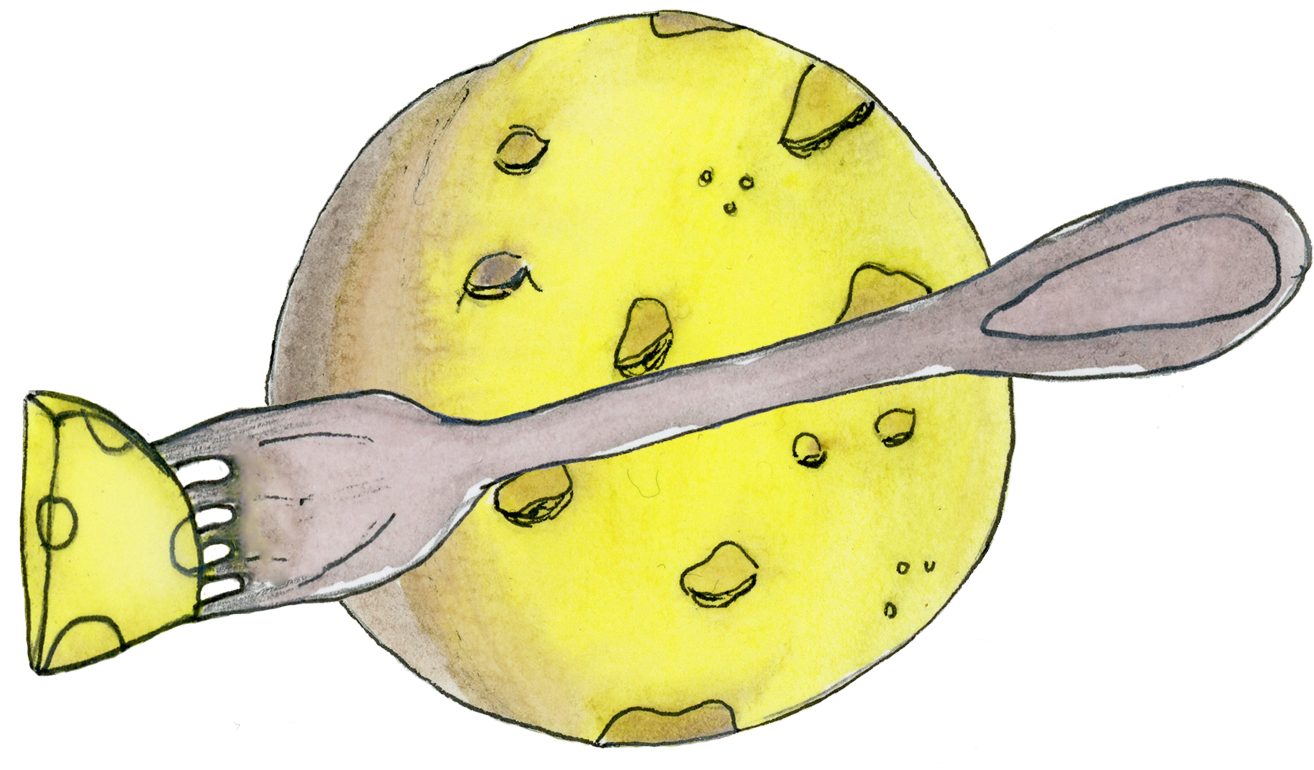interviews
Julie Wolfson April 2020
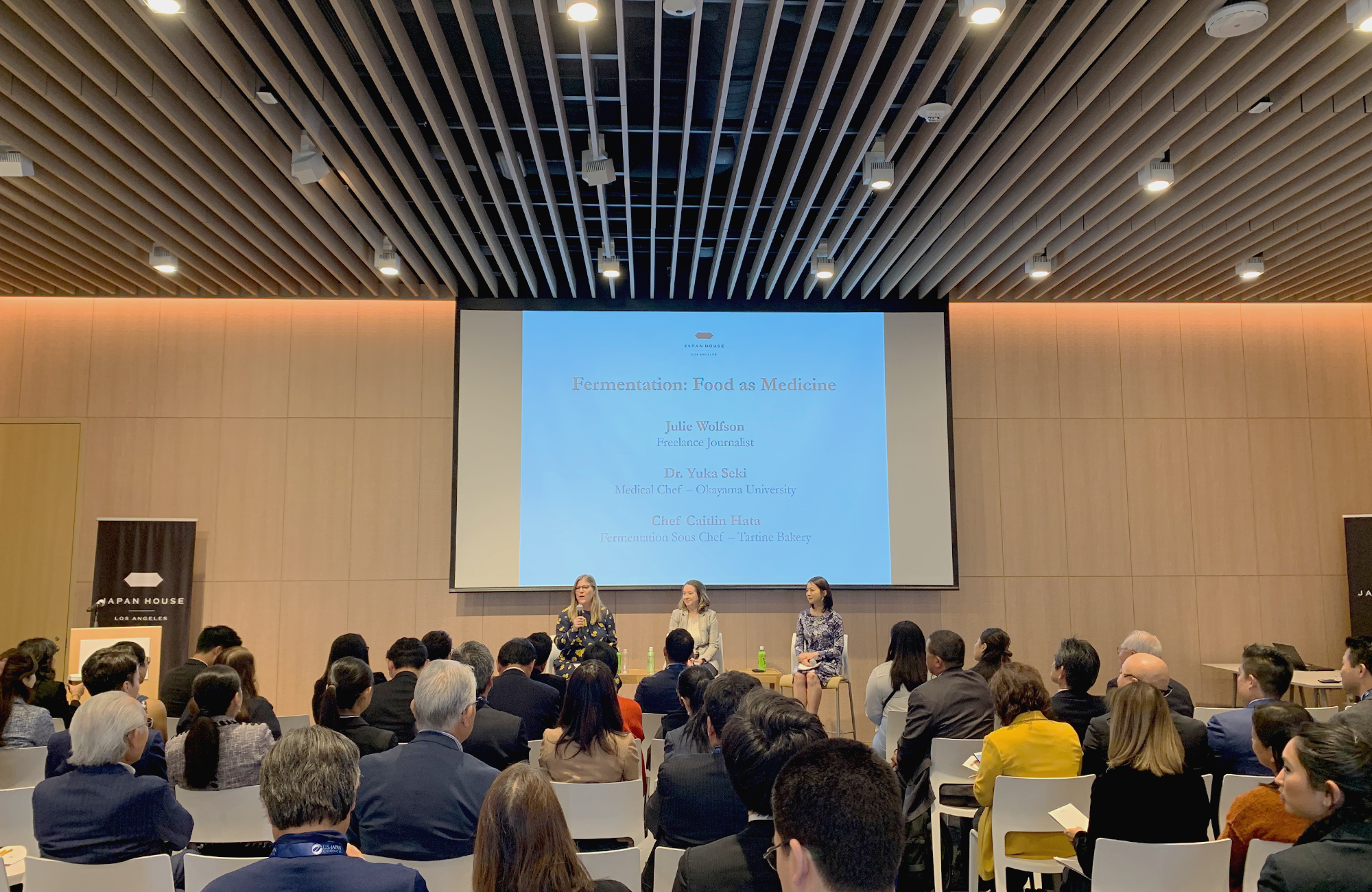
Can you tell me about where you grew up and what you ate as a kid?
I grew up in the suburbs of northern California, Marin County, north of San Francisco in a town called San Rafael. My mother is the daughter of a man who escaped Russia, lived in Shanghai for five years, got to California, married a woman, had four kids and taught them to speak English and be Americans. When I was born, my mother had not spoken a word of Russian or cooked any Russian food. So, we ate suburban 1970’s food, slightly influenced by the bay area. Because we weren’t in the middle of the country, our suburban meals included things like steamed artichokes and lamb chops but there wasn’t a plethora of different vegetables because my dad is a very picky eater. My older brother was an athlete, so he was always dieting or binging for a long running race – he had a crazy diet. My mom wasn’t really a cook, but she just had to get the food on the table. I would say the only sort of special things were the Jewish holiday dishes, not necessarily her forte but she tried!
Your dad didn’t cook at all?
He did but it was poached eggs and a cut grapefruit for breakfast. So, it was all very simple. And then we grew up part time in Lake Tahoe. One really specific memory I have that seems closer to where I’ve arrived at now, is that we would go catch crayfish in the lake and bring them home. My aunt would steam them and then we’d figure out what to do with them. We didn’t really have a culture around the crayfish, but we were so excited that we could catch something edible.
What would you do with them?
Mostly just steam them and pull the tail meat out. Now that seems so ridiculous because I know so many amazing Asian families that would’ve stewed them and made stock and sucked meat out of the head. But we at least tried to eat some of the tail meat. We did a little bit of fishing up there too and cooking the fish which got me a little closer to asking questions like “Where does your food come from?”

Julie in London in 1997
What was the food culture like back then in the bay?
I don’t know, because my mother wasn’t involved in it; we arrived at the farmer’s market shopping much later. But I had one aunt who was much more into it. She and her husband bought a home in Ross and she would pick fruit, can, preserve, and dry it all. So, I saw it starting to happen, but she was considered the kooky lady in the family! She was the kooky lady who’d bring you a plastic bag of dried apples and people were like hmm that’s kind of weird. And of course, now I’m like aunt Sharon, you rock! But knowing what I know now about the culture up there, the only time I saw it was at the wineries. We would go there because my dad collected wine. We would tag along and hang out in the vineyard and see grapes hanging down. I would think about how those are the grapes that go into the machine that makes the wine that my dad buys and drinks. So, I got glimpses, but I didn’t get to live it.
So, then how’d you get into food writing?
I moved to LA in 1986 and studied theater at UCLA until 1990. I was a theater major but the coolest thing that was happening on campus was the world arts and cultures major. I took Balinese dance class and one night my teacher invited me to her New Year’s Eve party. Professors from India, Bali, Senegal – everyone, had all cooked. I went down the buffet, taking something, tasting bites and just felt “this is why I moved to LA!”
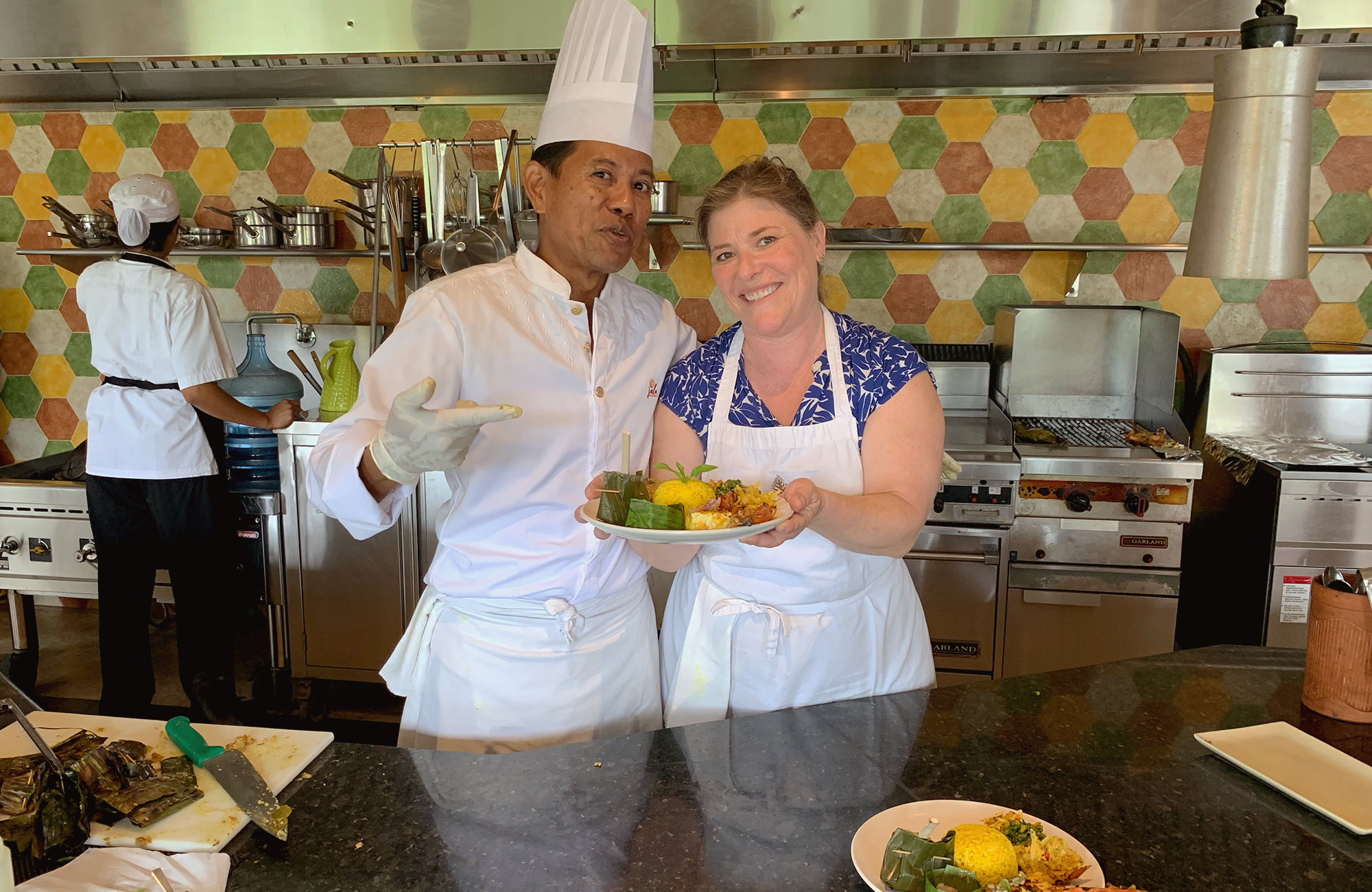
Julie in Bali in 2019 for a Cool Hunting assignment
I always knew I wanted to be in the city meeting people from all over and that the suburbs were not me; I always wanted to take vacations to cities where I could really see the mixing of cultures. So that plate of food was so eye-opening for me. I kept taking theater and dance classes thinking I’d be a theater director but then I started writing mostly about music and art. Someone asked me to interview a chef and I went “Oh wait a minute, this is starting to connect for me.” I loved doing theater and learning about dance but now I can learn about the creative process of all these other people. The very first food story I ever did was for LAist; it was an interview with Traci Des Jardins. I wasn’t interested in what was the most expensive thing that’s served at your restaurant which is why it was so cool I got to talk to her about her trip with five female chefs to go wild boar hunting in Mongolia.
Yes!!
And I was like “Now we’re talking!” So, then my whole first series of food stories was called “The Culinary Adventures Of” and it always had to be a chef who was going out into the world to do something. That series was me understanding that creative outlet of these chefs was more than catering to wealthy people. It escalated from there because then someone has me writing about tacos around LA or I’m in Mexico and I’m learning how to make Kalua. So many things start happening when you realize it’s more about the process and creativity.
Do you have any food writing icons?
I guess I have to say Jonathan Gold. I know it’s an obvious one but the thing about Jonathan is despite his missteps, he was in position to write about the most expensive and fine dining restaurants, but he realized the thing he was interested in was everyone’s culinary traditions. He wanted to experience a family restaurant or a young chef like Kris Yenbamroong from Night + Market, taking it to a modern level, and all the things in between. He did write about some Italian restaurants and things like that, but he would make it interesting. What was really fun was his way of opening a piece, bringing you along for the ride – “Now we’re in Alhambra and we’re walking into a Chinese restaurant and the grandma shook my hand!” I loved his spirit of adventure. I loved that it was really democratic, that he was championing all these places to the point where we all got more adventurous about where we ate. We all became less picky about how fancy the dining room was and drove out of our comfort zones to try a completely different cultural experience.
Did you ever get to meet and hang out with Jonathan?
Oh ya, often. I mean we weren’t close friends, but we were at the LA Times at the same time for a while. He knew so many people, that sometimes he’d forget who did what. One time I was at the LA Street Food Festival which was one of the first ones and my friends were producing it; I had nothing to do with it except for to bring my pom-poms and be a cheerleader. Someone said to Jonathan, “Ok it’s time to go and taste, you’re the judge,” and he was like “Ok Julie let’s go!” I think he thought I was working there but I didn’t care, I got to walk the whole festival with him and watch him taste everything.
Jo Stouggard, Jonathan Gold and Julie in 2011
That’s so cool and special.
He went back to Javier Plascencia’s booth from Tijuana three times, because Javier had topped this oyster with some magical combination of things. Things like that would happen and we had a lot of mutual friends, but he was just the kindest, sweetest, quirkiest, oddest fella you ever met.
He really changed the culture of food in LA for the better.
He made it so much less of a culture of “Have you been to L’Orangerie?” to “Have you tried five different kinds of tacos from five different regions in Mexico?” I have so many friends who feel like he helped their family business – Guelaguetza, Jitlada. What’s better than a family business thriving?
Do you feel like you can do that or have done that with your writing?
Oh, on a very small level sure, sometimes an article helps someone. I’m not a cultural force like Jonathan but I try to write really well and as factually and entertainingly as possible to give people a glimpse into what I’m looking at. I’m always happy when I write for a small publication and ten people read that piece.
Ok I’m gonna pivot a little and ask you about being a mom and working.
Aww yes! I was lucky because I was always in a creative field and always freelancing. So, I feel like that gave me the flexibility to feel like I could be working all the time but also a mom all the time. I know when a person’s a corporate lawyer or something like that, you don’t have that same freedom.
So, you’ve been writing since both girls were born?
Ya, I was still doing theater when Sofia, my oldest daughter, was born. I had started writing shortly after she was born. But Sofia came with me to a Virginia Avenue Project rehearsal when she was only a month old and they wanted her to be in the play as a baby bagel! I have almost always been able to balance those two things – being a mom and working which I feel so grateful for. I have absolutely nothing against stay at home moms; if you have that choice, go for it, do it. But I can’t really stress enough the importance of kids, and especially girls, seeing their moms work. I have friends that work full time that ask me if I think their kids are being neglected. I say no, they’re being inspired. I think it’s good for kids to see the balance between work life and home life, what their options are. In some cultures, there are still those old-fashioned values that the boys will grow up and work and the girls, “we’ll see, we’ll see.” And I want the girls to believe they can make whatever choice they want to. Plus, my job is fun, so they get to tag along a lot.
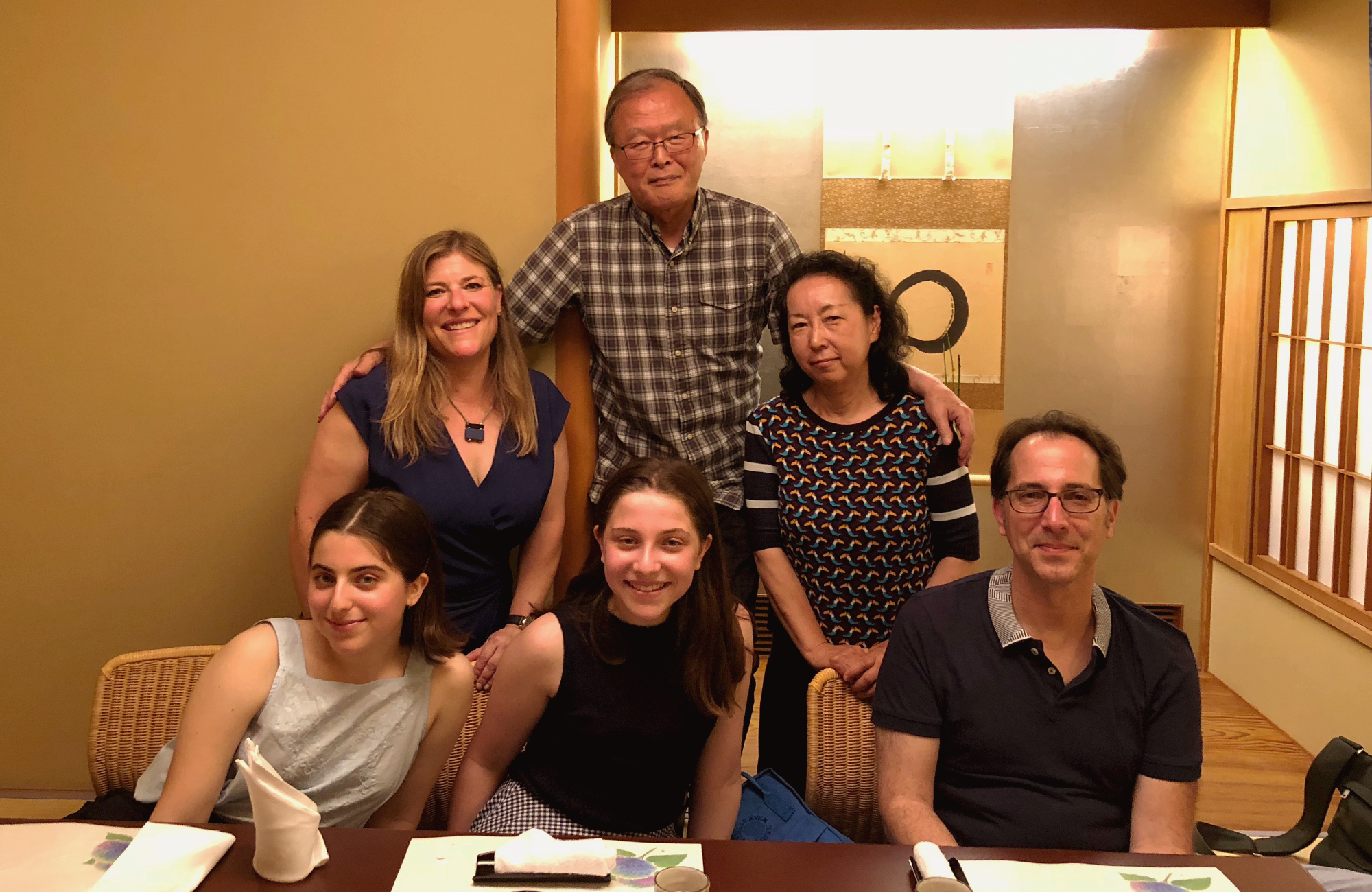
Julie with her daughters Sofia and Vivian, husband Steven and friends in Tokyo in 2018, research trip for Cool Hunting
Do they write at all?
When Sofia was little she had a food blog called Sofia-ist when I was writing for LAist!
Oh my god that’s so cute.
At one point, we were friends with Michael Voltaggio the chef, and he wrote an article on his blog called “Food Writing.” It was about how food writing is important part of food culture and gave examples of people like Jonathan Gold at the LA Times and like Sofia Wolfson of Sofia-ist.
That is amazing, how old was she?
I think around ten. It was really cute she’d write about tacos and art shows that we went to together. But she is a writer, she’s a poet, a songwriter, she’s written for many publications as a journalist, mostly about music. She was always meant to be a writer, it’s what she did in school. Vivian writes as well; English is her favorite subject. So, both girls are into writing.
Does your husband write?
Yes, he’s a playwright. Does some consulting for television, memoirs, novels, short story books, all of it.
Oh, ok so the girls have both parents as influences, it’s all around.
Ya but I wasn’t planning to do it, at all. I was a theater director; I helped the playwright get their vision or I’d interpret the historic play. But the only writing besides academic writing I had done before what I do now, was adapting plays. My intention was never to write. But once my work became more journalism and reporting and my husband Steven’s was more creative writing, then all of a sudden it felt like my own thing.
So, you’re my favorite farmer’s market friend and I’m sure a lot of people feel the same way.
The farmer’s market is like my night club!
I kind of feel like that too, it’s my favorite part of the week. So, tell me about your relationship with the Hollywood farmer’s market and that food community.
Well first of all I used to go to the Santa Monica farmer’s market.
The Wednesday one?
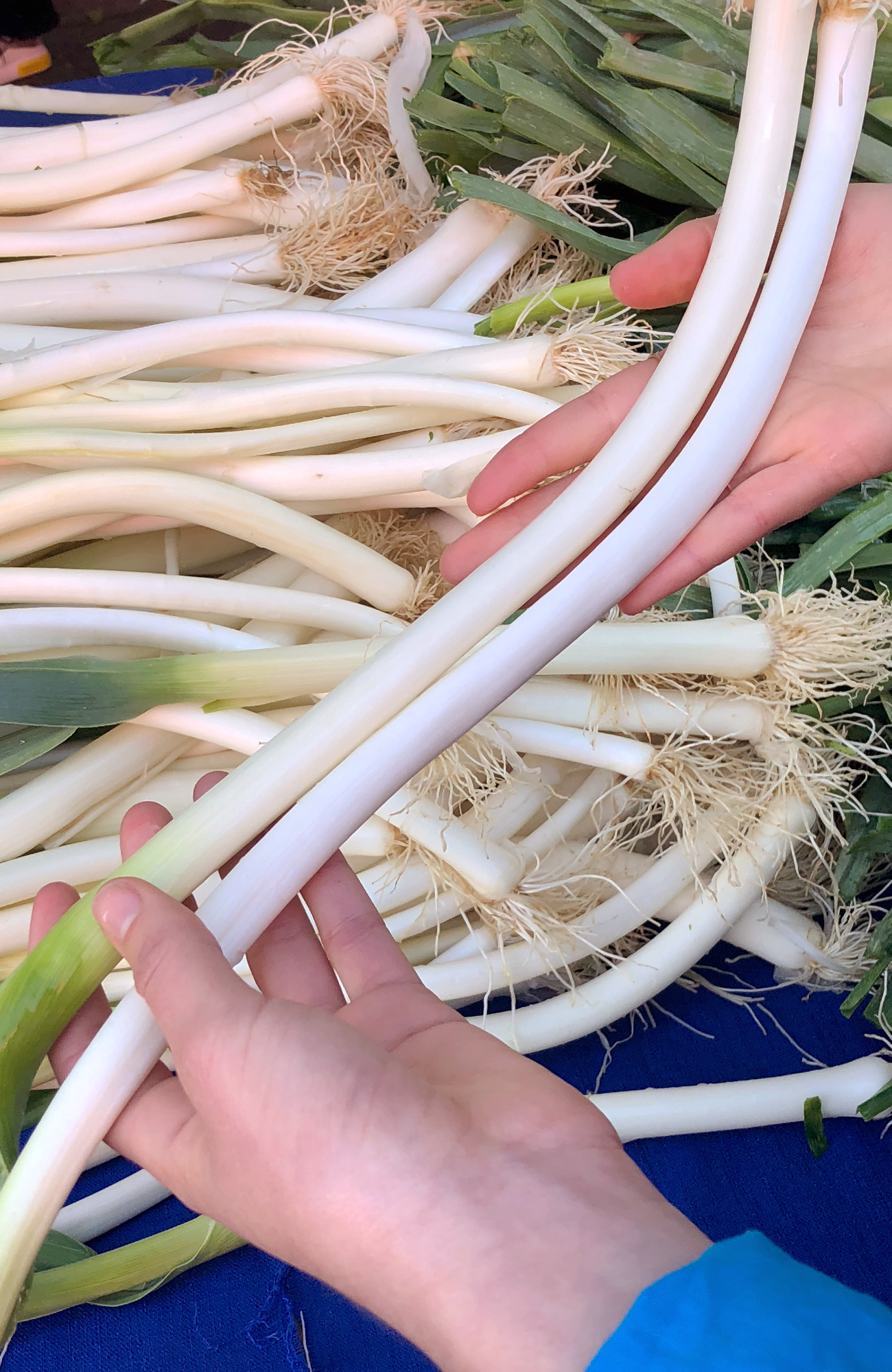
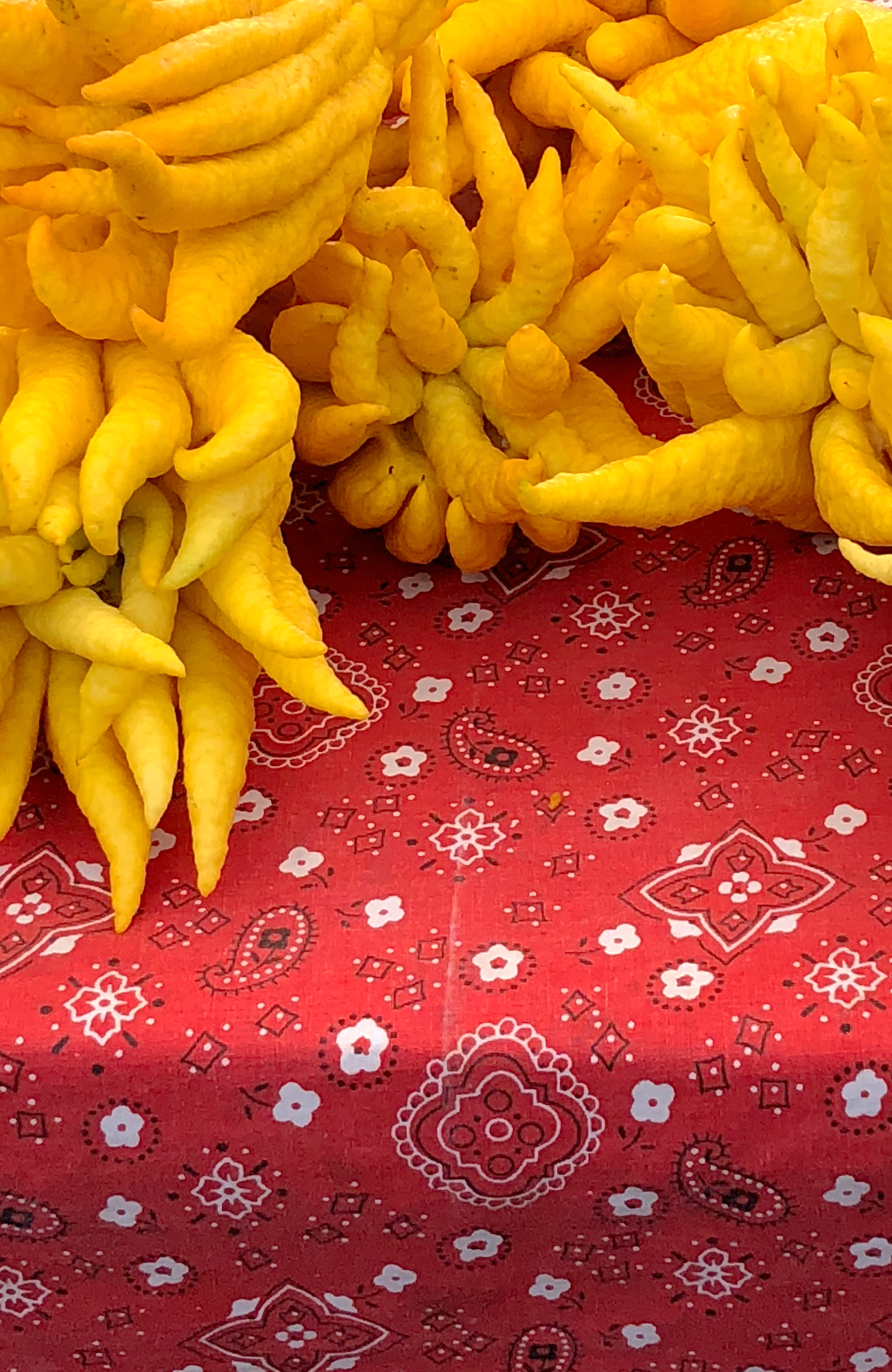
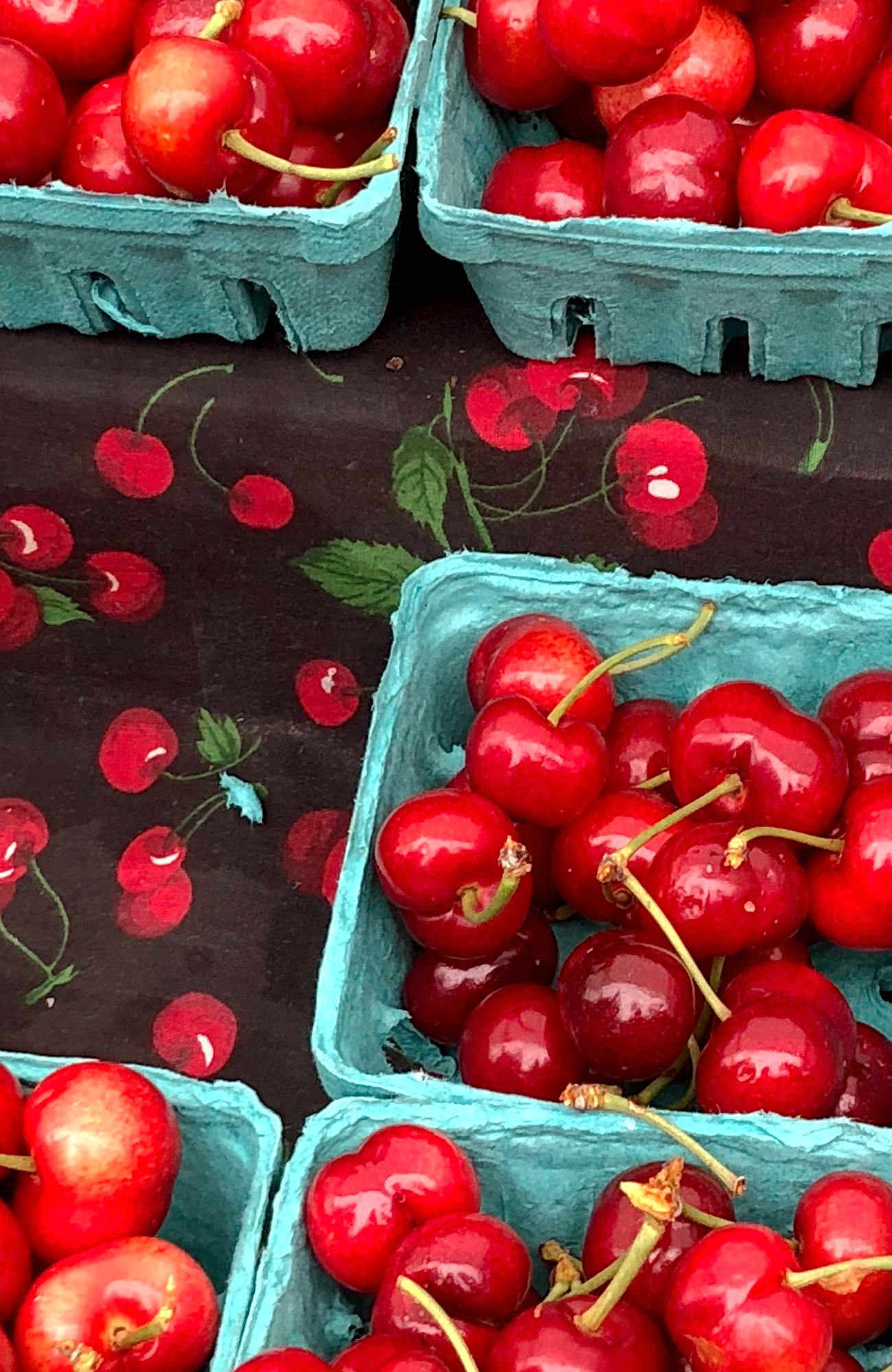
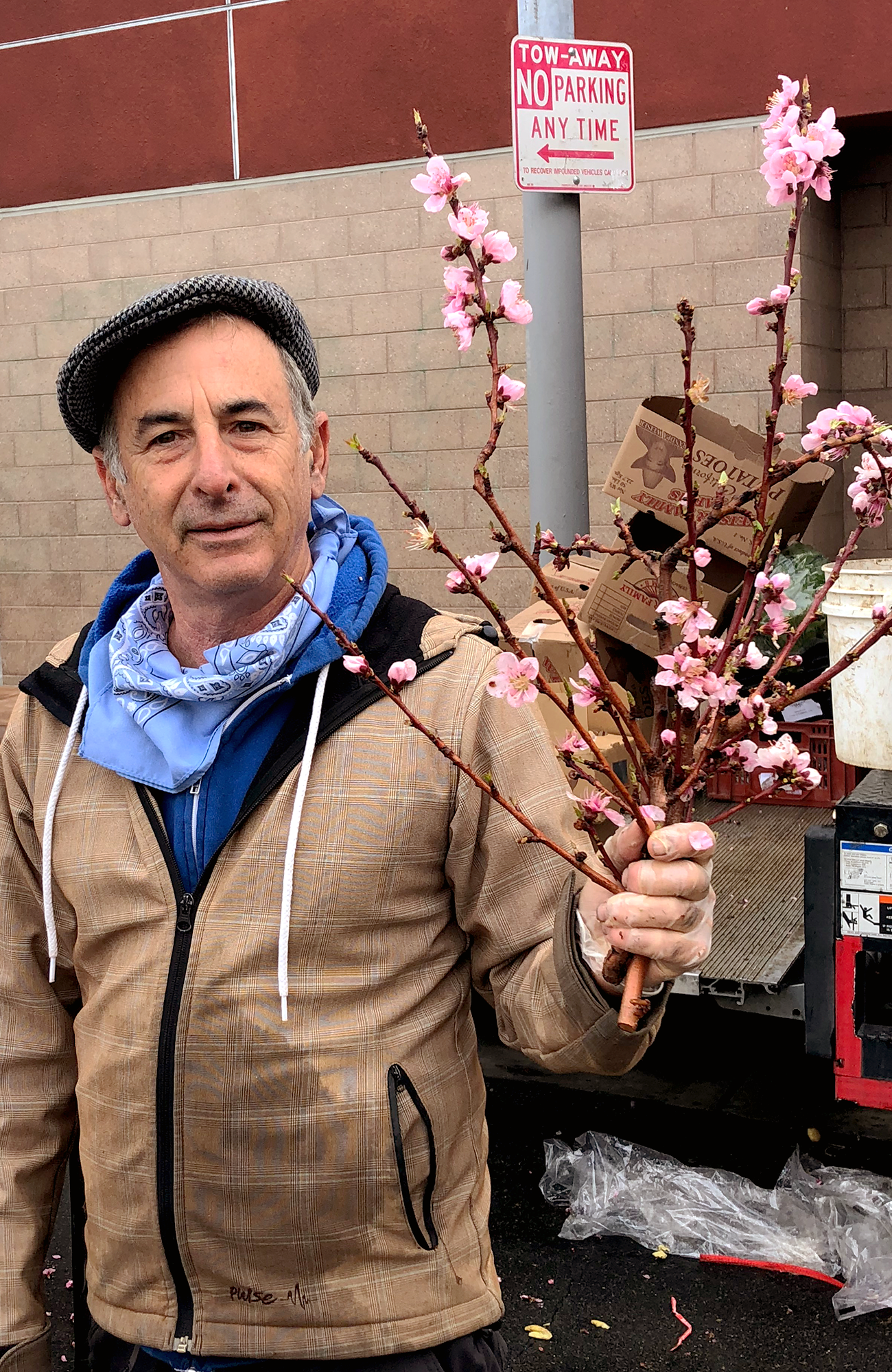
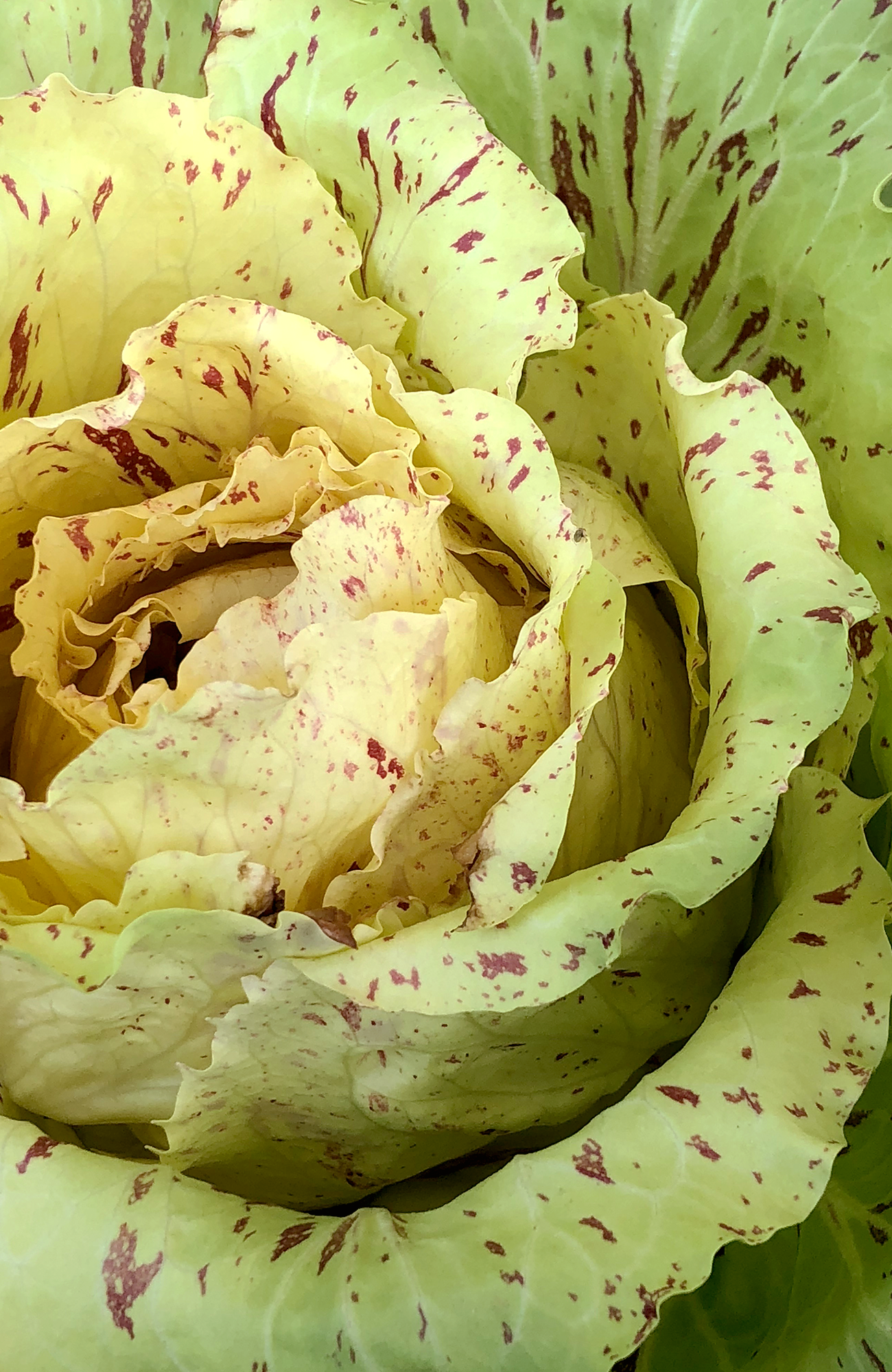
Yes, the big one and the Main street one on Sundays. Then we moved to this side of town and started going to the Larchmont. I would only go up to the Hollywood market once a month to get a specific ingredient, to go to an event or meet a friend. One Sunday I was at the Hollywood market with Vivian, my youngest daughter. We were at the Garden Of’s booth and Viv went and to pick some little gem lettuces. She carefully picked each one, bagged them and brought them back to me. Debby Takikawa, one of the owners of the farm, saw this whole thing and looked at Vivian and asked her if she wanted to try working at their booth. Obviously, Viv was so excited and said yes. So, she paid Viv in vegetables until she turned twelve and they got her a work permit. She worked there for three and a half years every Sunday. That solidified my love of the market and my need to be there every weekend. Over time I got to know more and more farmers, started running into more and more of my chef friends. I started volunteering for SEE-LA, the non-profit that runs the market. It just became our family, the circle of friends and people in food grew very organically out of the market. We all love our Sunday morning and having access to this gorgeous produce, it’s just my happy place. And it’s in the middle of the grittiest part of Hollywood.
It’s honestly insane how the market transforms that space.
When they started it twenty years ago, there were needles on the floor, broken beer bottles; it was all nightclubs. But a councilperson at the time was trying to make something special happen in their jurisdiction and they chose that space to revitalize the area.
It really works, it’s magical. But I was honestly a little intimidated when I first moved over here to make that my market because it’s so big and there are so many people, like trendy famous people. But at the same time, it’s nice that everyone is there for the same thing.
Ya that’s my experience as well.
So, what is your favorite food related project you’ve ever worked on?

Oh, that’s hard…
I’ve had so many favorites but one of the most inspiring was when I was hired by the Henry Ford Magazine to write an article about Alice Waters and the Edible School Yard. I could have just made a few phone calls and asked for a few photos, but I don’t like to do that. I drove up to Berkeley and hung out at the original MLK Jr. Edible School Yard garden, went to the garden classroom and into the kitchen classroom, I went to Chez Panisse and then drove back through Bakersfield and went to the Kern County Edible Schoolyard. It was so cool to see what Alice has accomplished with her garden programs. When I got back to LA I spent a lot of time at the Garden School Foundation and the program they have at the Larchmont Charter school. As often as things point back to Alice it’s for a reason – her program and ethos around her restaurant has created so much. At the Garden School the teachers have noticed a difference in the kids’ lunchboxes since the program started. Lots of the kids pick food from the garden, bring it home and have their parents chop it up for them. Some kids go home and ask their parents to go buy fruits and vegetables, which in food deserts is obviously really hard. But the change this program has created for these kids is unbelievable.
I’ve had so many favorites but one of the most inspiring was when I was hired by the Henry Ford Magazine to write an article about Alice Waters and the Edible School Yard. I could have just made a few phone calls and asked for a few photos, but I don’t like to do that. I drove up to Berkeley and hung out at the original MLK Jr. Edible School Yard garden, went to the garden classroom and into the kitchen classroom, I went to Chez Panisse and then drove back through Bakersfield and went to the Kern County Edible Schoolyard. It was so cool to see what Alice has accomplished with her garden programs. When I got back to LA I spent a lot of time at the Garden School Foundation and the program they have at the Larchmont Charter school. As often as things point back to Alice it’s for a reason – her program and ethos around her restaurant has created so much. At the Garden School the teachers have noticed a difference in the kids’ lunchboxes since the program started. Lots of the kids pick food from the garden, bring it home and have their parents chop it up for them. Some kids go home and ask their parents to go buy fruits and vegetables, which in food deserts is obviously really hard. But the change this program has created for these kids is unbelievable.
So how do you strategize what you’ll write about?
I mean some things get assigned but then others I get invited to do things that excite me, and I have to choose based on where I think my people are going to be. I’ve gotten to travel around the world learning about food and how to make whiskey, or I recently went to Japan got to wake up at 5 am and ate raw fluke over rice in the fish market with fresh egg yolks with locals I’d met through friends. But like KCET had me on a bunch of cultural assignments that I loved where I got to learn about Jaipur, Brazil, Taiwan, Laos but I still don’t know anything about Russian food.
That’s your culture.
Ya that’s my heritage. I’ve tasted some Russian food, but we don’t have that much in the way of Russian food happening in LA; there’s not THE restaurant or a young Russian chef interpreting the food for today. There’s just a big fancy dining room where people spend a lot of money on their birthday and then there are little bakeries and markets. I’m still searching. Maybe there’s a Russian holiday where all the grandmas make cookies and that’s the story. Or maybe there’s a young chef that will open a restaurant like Kachka in Portland. This is the piece I feel like is in my future, tracing my own roots because I trace everybody else’s.
When will you do that?
Well I want to go to Russia. I’ve been to Shanghai where my grandfather used to live and walked the area where he had his business, but never to Russia. I’d love to go with one of my relatives who is bilingual because I have a lot of Russian relatives, I just haven’t figured out how to do that yet.
Do you like Russian food?
I want to like it. Which is why I’m intrigued by this place in Portland – I don’t want to eat a giant pierogi that’s over-salted and under-baked – I want Russian food but slightly more refined. Or grandma versions! That’d be fun to find the grandma who makes the best borscht.
Ok so, the big question – what are your top five restaurants in LA right now?
Oh gosh this is so hard. Ok BADMAASH always, I love the whole menu there. Tsubaki and Ototo. With my girls we hang out at Honey Hi and Sqirl. Oh gosh why are you making me narrow it down!?
It’s fun. You’ve been to so many! Just keep going.
Tacos Maria, Porridge and Puffs. I have to say, I really love A.O.C, it makes me happy. It’s the kind of place I can just order a cheese board and a glass of wine and we’re full – it’s a very accessible luxury.
That’s a good list.

